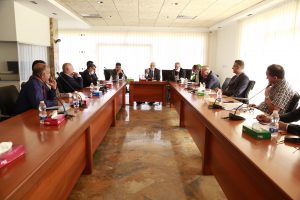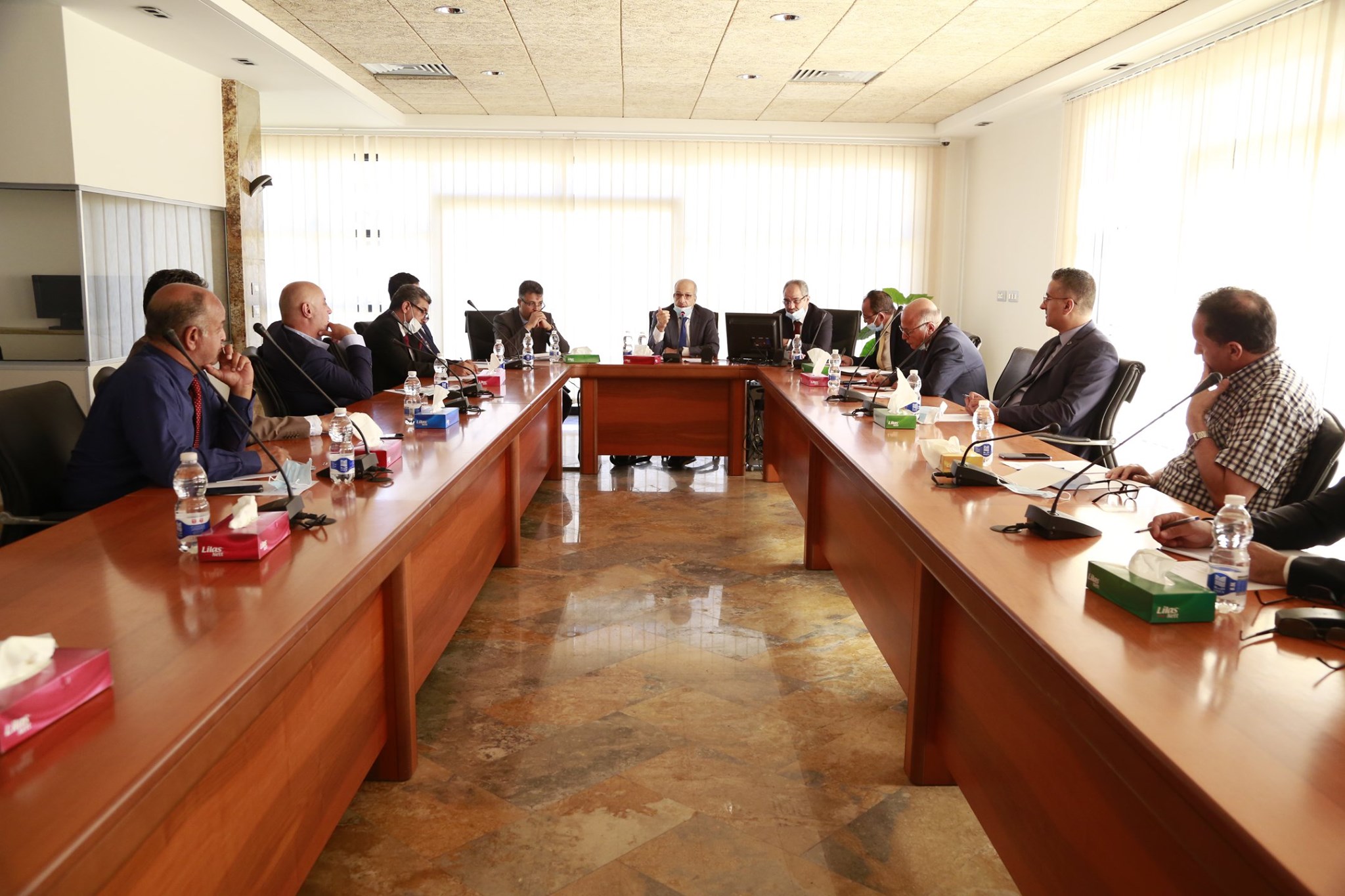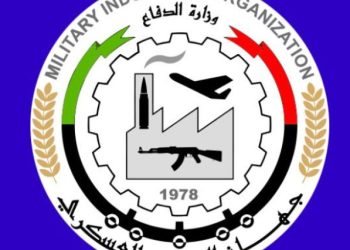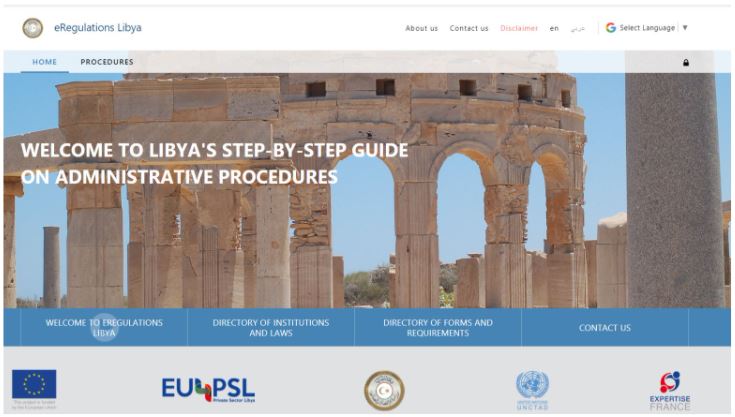By Sami Zaptia.

London, 23 July 2020:
The Tripoli Central Bank of Libya Governor, Saddek El Kaber, and several of his department representatives, held a consultative meeting yesterday with a group of independent experts and academics in finance and economy.
The CBL reported that the meeting discussed the current economic and financial situation and prospects in Libya. It reported that the ‘‘dialogue included constructive interventions’’ from attendees, who ‘‘presented their views on the advancement of the national economy’’.
The CBL said the discussion agreed on the need to join the efforts of state institutions and their cooperation in the re-production and export of oil, as Libya’ sole source of income, and to initiate a national reform effort in which efforts are integrated to strengthen the role of the private sector and achieve the desired reform’’.
Reunification of the Central Bank
However, what the CBL statement did not wish to highlight was that it was criticised and told that it needed to urgently reunite the Tripoli bank with the Beida central bank and that it needed to urgently hold a board meeting for this to happen. The Tripoli CBL is accused of avoiding a board meeting due to its minority support on the board which El Kaber fears would have him replaced.
Reactivating the suspended bank clearing system
The meeting also urged the reactivation of the suspended bank clearing system. Currently, Tripoli CBL has cut off eastern Libyan banks from its bank clearing process. Bank account holders in eastern Libya are today forced to transport carloads of cash to the west to be able to open Letters of Credit (LCs).
The CBL insists this is a monetary move. However, the move is seen as political, an attempt to weaken the competing eastern ‘‘Interim Government’’, led by Addalla Thinni and more importantly, Khalifa Hafter and his Libyan National Army forces.
The Tripoli CBL has always maintained that it is a technocratic, monetary institution that does not participate in Libya’s political in-fighting.
Because cheques drawn on eastern based banks are no longer cleared by Tripoli, eastern-based banks are now fast running out of cash reserves. The situation has become so critical that leading Libyan bankers warn that the whole Libyan banking system is on the verge of collapse.
Unifying the foreign exchange rates
The CBL was also urged to standardize and unify the exchange rate for hard currency sales. Currently, there is a preferential official exchange rate for state entities and those with ‘‘contacts’’ in the Tripoli CBL / Tripoli government for the US dollar at LD 1.4 / dollar preferential rate. The second official exchange rate is at about LD 4 per dollar for the opening of LCs for imports on the permitted import list. The black-market rate, meanwhile, is between LD 5-6 per dollar.
The existence of multiple exchange rates is seen as one of the major bones of political and military contention between eastern and western Libya. It is also a major source of corruption. Those with contacts, including militiamen and militia commanders, have reportedly become overnight millionaires as a result of obtaining an LC at the preferential LD 1.4/dollar rate.
Upon securing a preferential rate LC, they are subsequently able to instantly sell this at the black-market rate of LD 5-6/dollar – becoming instant millionaires at the stroke of a pen approving their request – often with a pointed gun at the CBL/Tripoli government.
Failure to integrate its monetary, commercial and finance policies
The CBL was also criticised for its failings in policy, and specifically its failure to coordinate and integrate its three monetary, economic and finance policies.
It was also criticised for engaging in a negative media campaign and correspondence war through leaked letters to the Presidency Council, headed by Faiez Serraj, and to the Finance Ministry, headed by Faraj Bumtari.
Sources at the meeting said that the discussion was open and free. The Governor listened to criticisms and even accusations that he/CBL were part of Libya’s financial, monetary, and economic problems.
He was urged to find urgent solutions to all these critical problems.
Analysis
Analysts, meanwhile, are undecided whether the Tripoli CBL was indeed interested in hearing about reforms, or whether it was grandstanding for public relations.
Most agree that Governor El-Kaber is well aware of what reforms are needed. There is a view that after the recent public demonstrations that may have helped lead to the sacking of the General Electric Company of Libya’s (GECOL) board of directors, CBL Tripoli was pre-empting any similar public pressure by being seen to be listening.
The press release about the meeting again continues the El-Kaber years long trend of blaming other external factors for Libya’s economic woes.
El-Kaber has criticised the government for not reaching political unification with the east and for failing to impose security. He has also blamed lack of oil exports for lack of state revenues. These are all valid criticisms. However, El-Kaber is criticised for not being able to operate during a crisis and unable to think outside the box.
He is seen as a Governor for good times not for a rainy day. Critics believe he should have devalued the Libyan dinar years ago and unified the board and the exchange rates.
https://www.libyaherald.com/2020/07/22/financial-database-fundamental-to-building-stability-in-libyas-economy-cbl-beida-report/
https://www.libyaherald.com/2020/07/23/eastern-cbl-financial-stability-report-imbalance-in-state-financial-discipline-2-2/
https://www.libyaherald.com/2020/07/22/libyan-economy-on-verge-of-collapse-because-of-oil-shutdown-former-banker/








